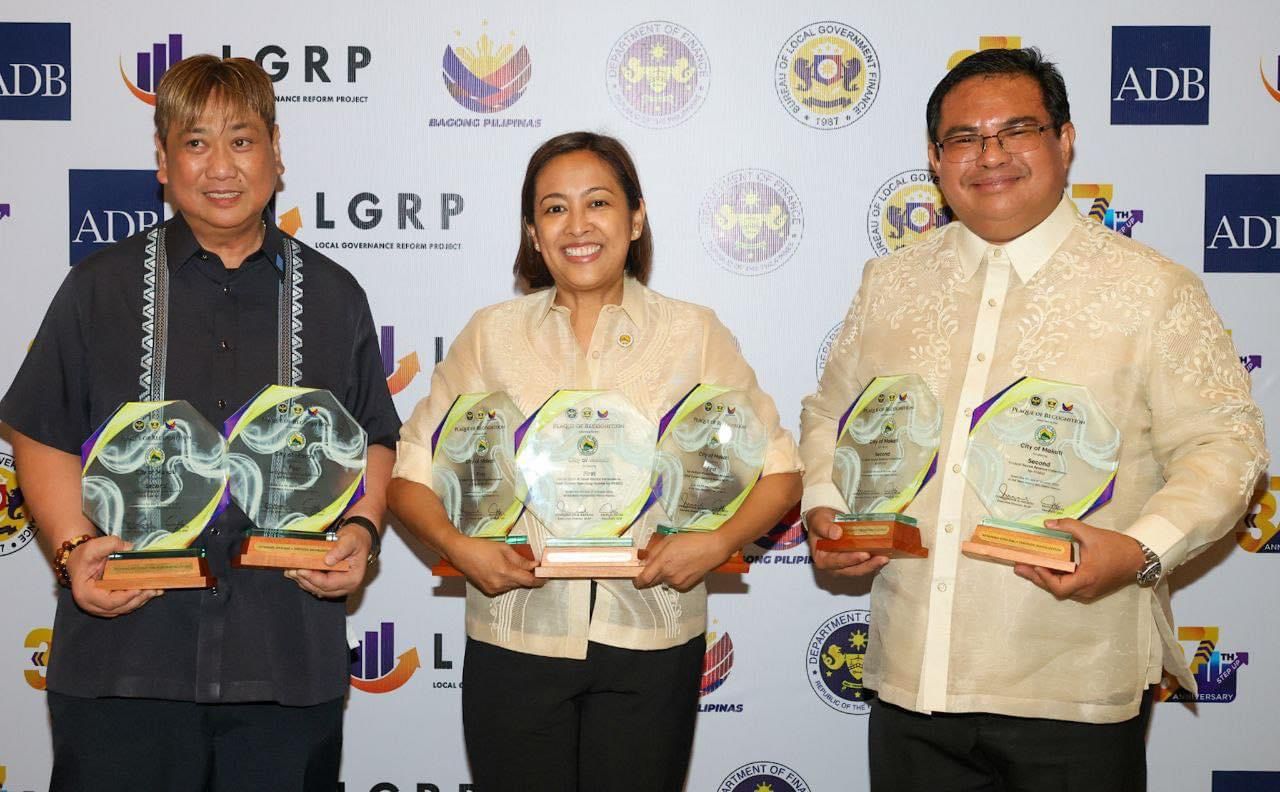Top of the crop: Makati bags top spot in DOF fiscal autonomy ranking
The Makati City government on Wednesday, October 9, was recognized by the Department of Finance (DOF) for ranking first among Philippine cities in sustaining its fiscal autonomy through local revenue sources and in posting the highest per capita spending for fiscal years 2022 and 2023.

Makati Mayor Binay, together with City Treasurer Jesusa Cuneta and Business Permits and Licensing Office head Atty. Maribert Pagente, received seven awards from the agency during the event held at Seda Manila Bay Hotel.
Binay expressed her gratitude to the business sector and Makatizens for the city's financial achievement.
"We gratefully acknowledge the unwavering support of the city's business community, residents and other stakeholders. Your trust and cooperation have been indispensable to the sustained robust economic growth of the city, paving the way to better services and benefits for all stakeholders," Binay said.
The city was also awarded as Top 2 among cities for local source revenues for the two-year period, and Top 2 among highly urbanized cities for year-on-year growth in local source revenues for fiscal year 2023.
"We are honored to receive these accolades. These are testaments to the persistent efforts of the city government to expand our revenue base through reforms and smart innovations that promote efficiency and transparency in our revenue collection and processing of business permits and licenses,” she explained.
According to DOF's Bureau of Local Government Finance (BLGF), Makati's ratio of local source revenues to total current operating income reached 86.84 percent in 2022 and 90.60 percent in 2023. The high ratio indicates the city’s high level of independence from external sources, such as the national tax allotment and shares from PEZA and PCSO.
The city has also recorded the highest total current operating expenditure per capita among all cities, with P24,050 in 2022 and P23,995 in 2023.
“For the past eight years, Makati’s sustainable and strong local economy has made it possible for the city government to undertake game-changing innovations that have made our services and programs better and more conveniently accessible to residents and other stakeholders,” the mayor said.
In the latest report of City Treasurer Jesusa Cuneta, the city has surpassed its revenue target for the year as of end-August. Total revenue collection reached P18.8 billion, or 102 percent of the P18.4-billion target.
The report shows business tax as the highest revenue source, with P10.22 billion, followed by real property tax with P6.19 billion.
From other local sources, the city collected P748.82 million from fees and charges, P310.12 million from economic enteprises, and P411.75 million from interest income.
The remainder of the total collection includes P670.76 million from national tax allotment, P248.13 million from share from economic zone (PEZA), and P4.22 million from share from PCSO.
As of end-September, the city government has approved the registration of 3,900 new businesses this year, which have a combined capital investment worth P31.87 billion.
A total of 34,771 business establishments have renewed their permits during the same period, registering gross sales of P1.87 trillion.